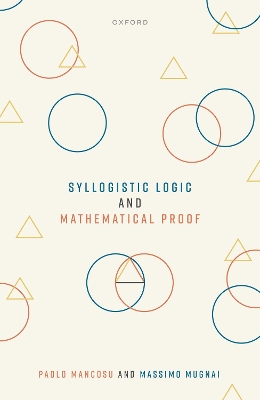Does syllogistic logic have the resources to capture mathematical proof? This volume provides the first unified account of the history of attempts to answer this question, the reasoning behind the different positions taken, and their far-reaching implications. Aristotle had claimed that scientific knowledge, which includes mathematics, is provided by syllogisms of a special sort: 'scientific' ('demonstrative') syllogisms. In ancient Greece and in the Middle Ages, the
claim that Euclid's theorems could be recast syllogistically was accepted without further scrutiny. Nevertheless, as early as Galen, the importance of relational reasoning for mathematics had already been recognized. Further critical voices emerged in the Renaissance and the question of whether
mathematical proofs could be recast syllogistically attracted more sustained attention over the following three centuries. Supported by more detailed analyses of Euclidean theorems, this led to attempts to extend logical theory to include relational reasoning, and to arguments purporting to reduce relational reasoning to a syllogistic form. Philosophical proposals to the effect that mathematical reasoning is heterogenous with respect to logical proofs were famously defended by Kant, and the
implications of the debate about the adequacy of syllogistic logic for mathematics are at the very core of Kant's account of synthetic a priori judgments. While it is now widely accepted that syllogistic logic is not sufficient to account for the logic of mathematical proof, the history and the analysis
of this debate, running from Aristotle to de Morgan and beyond, is a fascinating and crucial insight into the relationship between philosophy and mathematics.
- ISBN10 0198876920
- ISBN13 9780198876922
- Publish Date 18 May 2023
- Publish Status Forthcoming
- Publish Country GB
- Imprint Oxford University Press
- Format Hardcover
- Pages 256
- Language English
